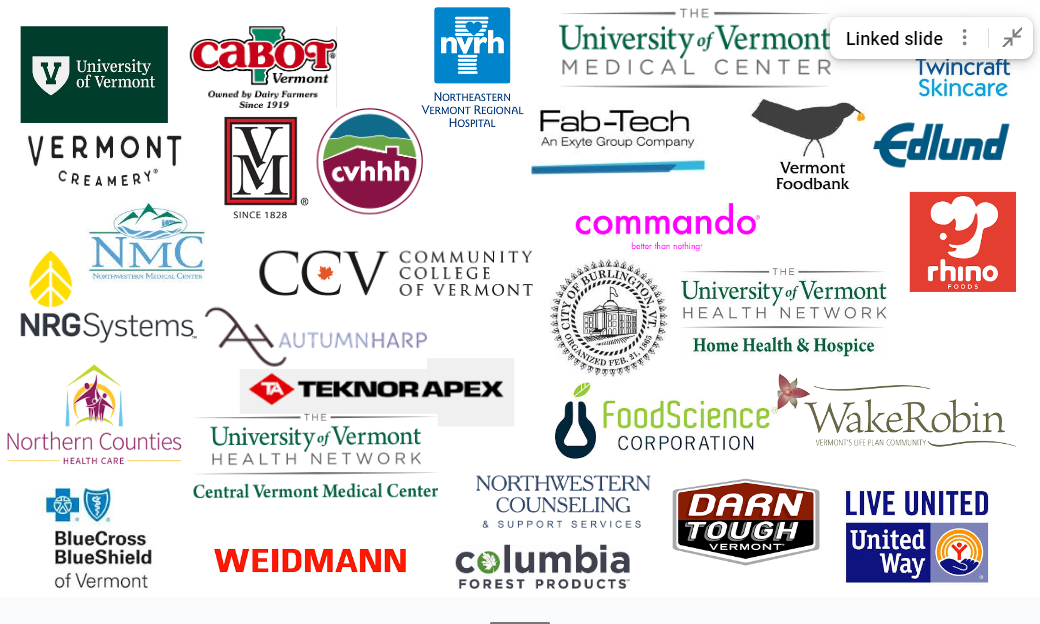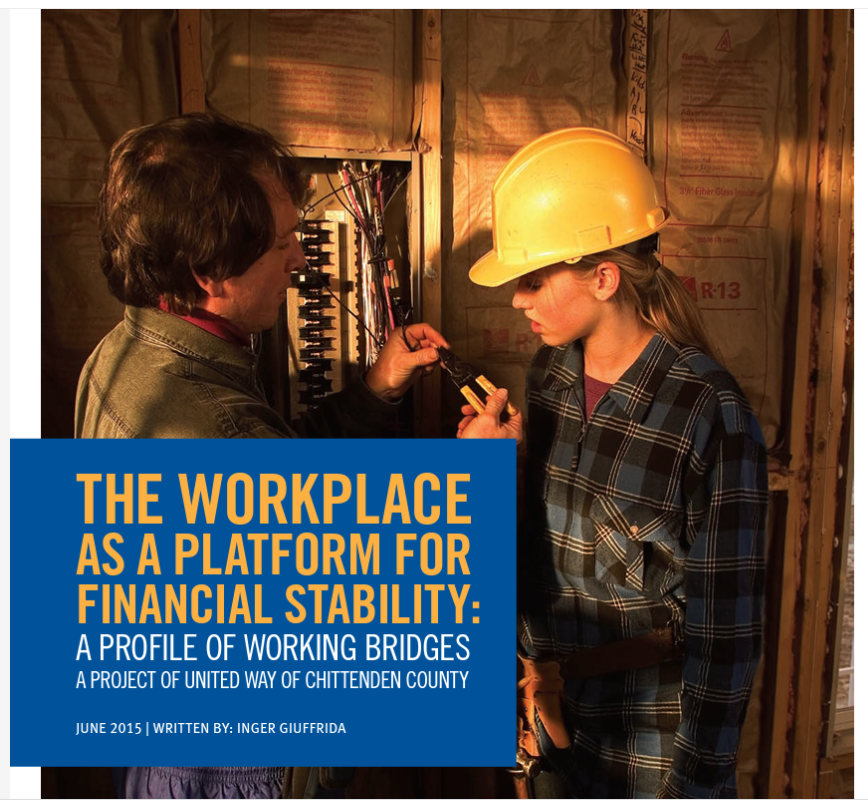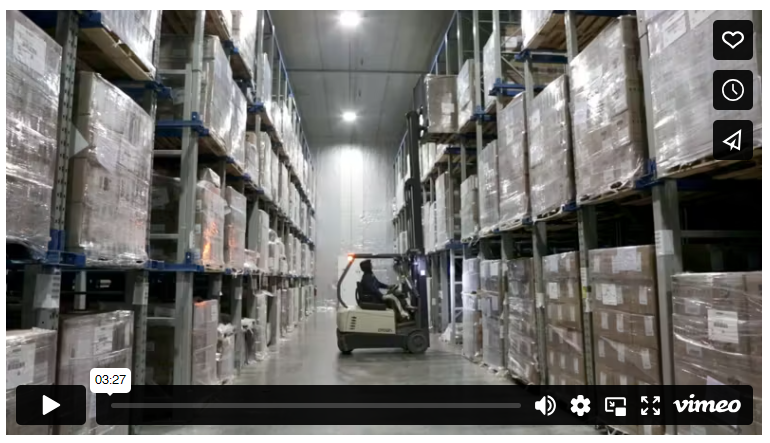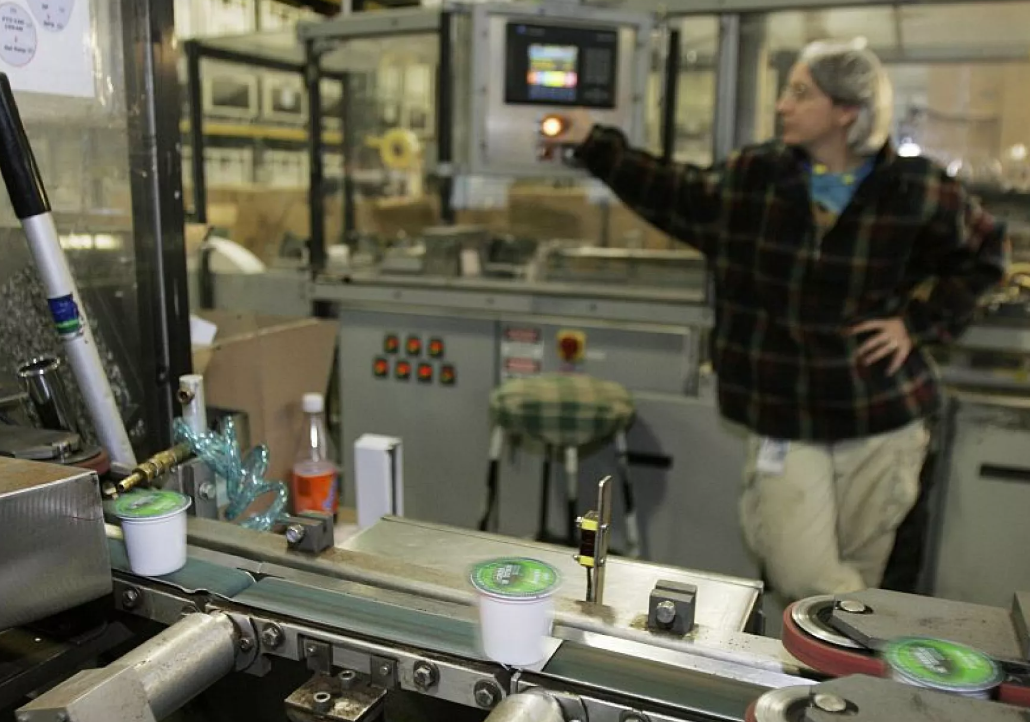WORKING BRIDGES
Working Bridges is a partnership between United Way and employers focused on giving employees the resources they need to gain, keep, and grow in stable employment. We do this by bringing human services support directly to the employee onsite at the workplace. This support includes confidential, one-on-one resource coordination, income advance loans, classes or workshops, and an onsite Volunteer Income Tax Assistance (VITA) site during tax season.
We work with employers to capture data & stories that give a new perspective on what employees in a workplace are experiencing that might interrupt their opportunity to stay employed. We also work to connect employers who are seeing similar struggles in their workplace to come together and work to collaboratively impact the challenges in their workplace and in the broader community.
This initiative has received national acclaim for its proven success. The Income Advance Loan component is being studied by Filene’s Research Institute for its potential to be offered nationwide as an alternative to predatory payday lending practices.
Working Bridges is partnered with 30 businesses in northern Vermont. These partners employ many of our critical frontline workers, including in the areas of healthcare, human services, manufacturing, food production, and more.
Working Bridges Profiles
-
The Workplace as a Platform for Financial Stability
A profile of Working Bridges written by Inger Giuffrida in 2015.
-
Rhino Foods Income Advance Loan
A program of Working Bridges, Rhino Foods’ Income Advance Program was developed in response to requests from employees.
-
Vermont Public: A Route Out of Poverty
Lisa Falcone of United Way Northwest explains how the Working Bridges program helps workers step off the cycle of poverty.
CONNECT WITH US
Discuss how Working Bridges can benefit your employees and improve your business:
Tawnya Kristen
Executive Director
(802) 613-3989 or tkristen@gmunitedway.org
Maia Hanron
Working Bridges Senior Program Manager
(802) 613-3989 or mhanron@unitedwaynwvt.org
Contact Your Resource Coordinator
-

Blaire Haggett
Working Bridges Resource Coordinator
Central Vermont
Financial Training Manager
(802) 793-2791
-

Laurie Kelty
-

Michelle Clark
Working Bridges Resource Coordinator
Northeast Kingdom and Central Vermont
(802) 498-4885
mclark@gmunitedway.org
About Working Bridges
We understand that barriers such as childcare, reliable transportation and acute need for emergency financial assistance get in the way of continuous employment and derail good employees. To tackle this issue, a group of forward-thinking employers, United Way of Northwest Vermont and other community partners joined forces and founded Working Bridges, a public-private, multi-sector employer collaborative. Green Mountain United Way took over the administration of the Working Bridges program at Weidmann Manufacturing in St. Johnsbury in 2016 and officially adopted Working Bridges collaboration into our work 2017 with the help of a grant from FINRA.
Together, we seek business solutions for job retention and decreased absenteeism and use the workplace as a platform for social services. Our approach to financial stability focuses on Relationships, Resources and Retention. Through shared resources, employers are minimizing employment barriers for their low-to-moderate wage workers and maximizing the supports employees need to be successful and improve their lives.
WORKING BRIDGES PROVIDES:
Employee Loan/Savings Program (Income Advance Loan) is a partnership between employers and financial institutions to help employees meet emergency needs, and begin saving and building credit.
Resource Coordinators, who are shared by employers, provide on-site resource assistance to employees so that they get the help they need without disrupting work.
On-site Classes for employees in financial literacy or other educational opportunities that a particular group of employees might benefit from (for example, in Chittenden County, Working Bridges has brought GED classes and ESL classes to the workplace).
Mobile Volunteer Tax Preparation Program that provides employees with tax assistance and financial coaching at the workplace.
Education/Training for employers about economic class in the workplace. We use the Bridges Out of Poverty curriculum and concepts.
A Business Collaborative Group which happens when multiple employers come together to address challenging issues that they all see in their workforce. Employers have tackled issues affecting employee stability including transportation, income supports, and affordable housing. Together, we will design, test, and share innovative practices and refine policies to improve the lives of employees.
RESULTS AND BENEFITS
In 2015 the FINRA Foundation and United Way Worldwide published a comprehensive profile of Working Bridges that highlights the ways this initiative uses cross-sector strategies to engage our community in using the workplace as a platform for cultivating financial stability.
Potential benefits that Working Bridges has seen demonstrated at worksites include improved employee retention, decreases in lost time, and improvement in loan repayment rates.
INCOME ADVANCE LOAN
The Income Advance Loan was created to meet emergency financial needs of employees. A true social innovation, it creates a partnership between employees, employers and local financial institutions that not only provides a responsible lending alternative to help employees meet emergency needs, but also allows employees to begin saving and build credit.
Employee loans are a hand up, not a handout. These loans support job retention and encourage financial stability. A key feature of the loan program is that it loans are paid through direct deposit each paycheck and the deposits continue when the loan is repaid, starting a savings account, a small steps to a secure financial future. This benefit provides employers with structure and education to aid in their employees’ financial stability and turn a cash crisis into a savings plan.
The Income Advance Loan component is being studied by Filene’s Research Institute for its potential to be offered nationwide as an alternative to predatory payday lending practices.





